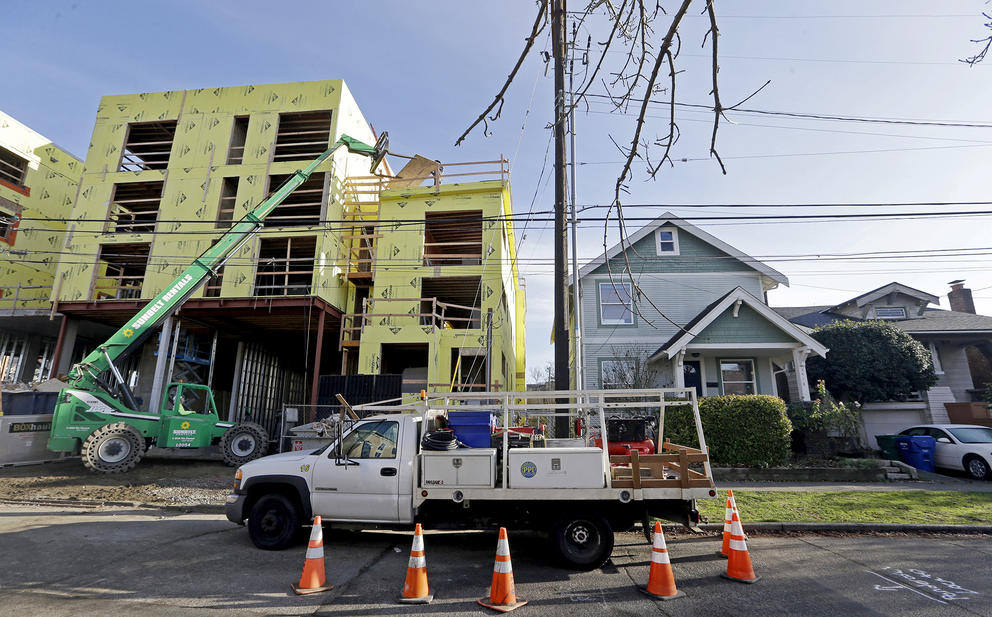The CEOs’ letter, sent to Harrell and the Office of Planning and Community Development on May 20, comes one week after a group of more than 50 business leaders, affordable-housing advocates and community nonprofits sent their own letter to City Hall criticizing the mayor’s plan. The May 20 letter is identical to the earlier coalition letter, on which Cascade PBS previously reported.
The full list of May 20 signatories: AI Tinkerers, Allen Institute for AI, Anthos Capital, Arrived, Axon, Clearbrief AI, Cloud Paper, DreamBox Learning, F5, Flying Fish Partners, Forum3, Founders Co-Op, Logic, Madrona Venture Group, MediCoder, Mt. Joy, Outreach, Pioneer Square Labs, Qumulo, Redfin, Syndio, StatsIG, Tanium, Tola Capital, Truveta, University of Washington Paul G. Allen School of Computer Science and Engineering, Unlock Venture Partners, and Zillow.
Kelly Fukai, Washington Technology Industry Association chief operating officer, said Seattle’s limited and expensive housing stock hurts tech companies’ ability to attract and retain talent, and is consistently a top concern voiced by their member companies. The WTIA helped the Seattle Metropolitan Chamber of Commerce organize the tech signatories.
“We supported the housing levy, but strongly feel that the levy alone cannot accomplish the desired outcomes,” said Fukai. “Modernizing the Comprehensive Plan will ensure we don’t repeat mistakes of the past and puts us on the path to improving affordability, accessibility, equity and sustainability for decades.”
Seattle is in the middle of its once-every-decade update of the Comprehensive Plan, a document that dictates what kind of housing and how much of it can be built in each neighborhood. The city must finalize and adopt the plan by the end of 2024.
When Harrell released his draft update of the plan in March, it was met with strong criticism from housing advocates, who said it would not allow enough new home construction in Seattle and, in turn, further exacerbate the city’s housing affordability crisis.
A group called the Complete Communities Coalition organized the early May letter asking the Comp Plan to allow greater density in all neighborhoods; to not concentrate all apartment construction along arterial streets; and to offer more incentives to developers to build income-restricted affordable housing without public subsidy, among other policy goals.
The Complete Communities Coalition includes business representatives, advocacy organizations and for-profit and nonprofit housing developers. It is led by the Seattle Chamber, the Housing Development Consortium, Habitat for Humanity’s local chapter, Tech4Housing, Futurewise, The Urbanist, House Our Neighbors, and NAIOP, a commercial real estate industry association.
In response to the early May coalition letter, the mayor’s office told Cascade PBS that they believe the current draft plan “achieves the goal of housing abundance and diversity.” But they also specified that the Office of Planning and Community Development still must produce more detailed plans for each of the Comp Plan’s seven “Regional Center” designations, which could be one way to increase density in parts of the city.



